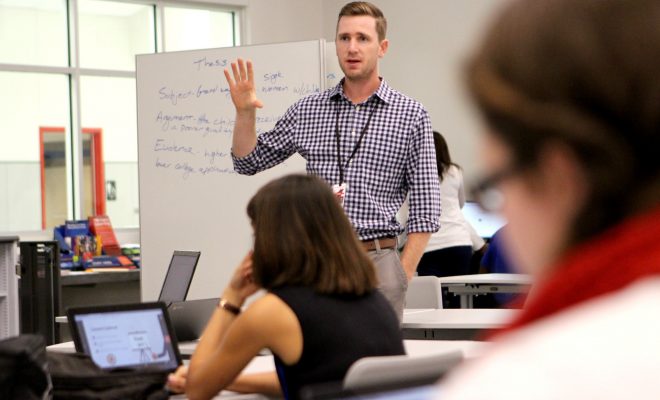Ask An Expert: Ending Corporal Punishment in Schools

Question: I recently moved from New Jersey to a small town in Louisiana. To my amazement and horror, my children’s elementary school still uses corporal punishment. Fortunately, it is an opt in system, but if parents do not consent to its use, their children are automatically suspended, whether it is in school or at home. What does research say about the effects of corporal punishment? What can we do to end this deplorable practice? Marcia E.
Answer: First of all, thank you for your question. It’s difficult to believe in this day and age that we still have some schools around the nation that are using corporal punishment as a form of discipline. At this point, there are only 19 states that now allow corporal punishment, which is allowing the school to use physical punishment on a child. Such punishment usually includes a spanking of some kind, typically done with a wooden paddle. Although not allowed in the majority of states, it is reported that there are over 200,000 children who are victims of it each year around the country. It’s difficult to imagine that so many children are going home throughout the school year with welts, bruises, and broken vessels, as punishment for something they did in school.
Spankings themselves, as well as corporal punishment, are controversial topics at best. There is a lot of evidence and research that has pointed to the fact that spanking as a form of punishment, at any age, can be problematic. We as a society need to be aware of this research, especially when it comes to it still being allowed in the schools of 19 of our states. Here’s some of the most troubling aspects of corporal punishment in schools:
• Research indicates that children who are disciplined with spanking go on to have more mental illness as adults. Spanking has been linked to children becoming adults who not only have mental health issues, but also experience more depression, and have problems with substance abuse.
• Spanking children is also believed to make them become adults who are more aggressive, antisocial, and who go on to abuse their own spouse and children.
• As a nation, we are concerned with our high school drop out rates. This makes me wonder how many adults would want to continue showing up at their jobs if they knew they would be paddled if they didn’t perform their jobs correctly. Perhaps if students were not being paddled, they may hang in there a while longer and take to their studies a little better.
Corporal punishment may be under attack, but until we outlaw it from every state in the country, we will have the problems associated with it each year. And those problems, as we have discussed, are far reaching and long lasting. They impact us as a society long after the child has completed their schooling.
While the Supreme Court allows corporal punishment in whatever states and school districts have it legally on the books, this is a matter of ethics. We as a nation need to do what is right by the next generation. By the looks of it, if corporal punishment continues in the 19 states it is currently allowed in, we will be raising a lot of children who may go on to have mental illnesses, be more aggressive, abuse their spouses, and have addiction problems.
Once they are adults, society can point the finger at them and say that it’s their own fault, and they have created the problems in their life by the choices they have made. But if we can agree that the writing is on the wall, and the potential long term impact is there, then we may need to start pointing a few fingers at the schools, as they are using a form of punishment that experts agree goes on to create more unwanted behavior.
Now is the time for parents around the nation, especially those who live in states where corporal punishment is still allowed, to take a stand. It’s time that we focus on more peaceful and less harmful ways to teach the children of the nation right from wrong. Getting rid of the paddles in the schools of this nation is a great place to start.




